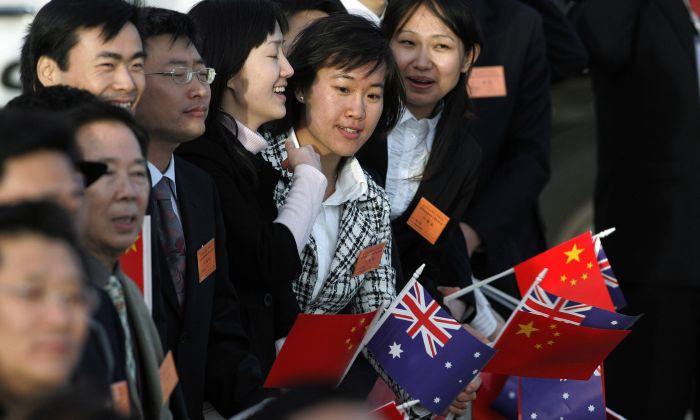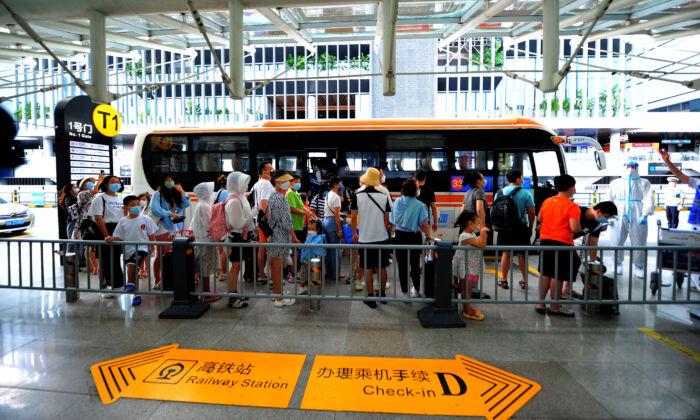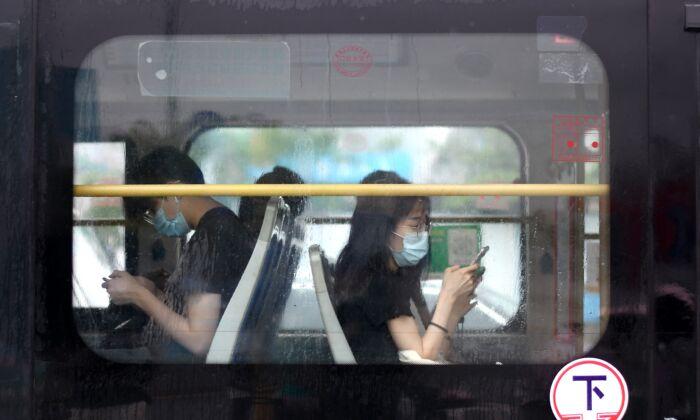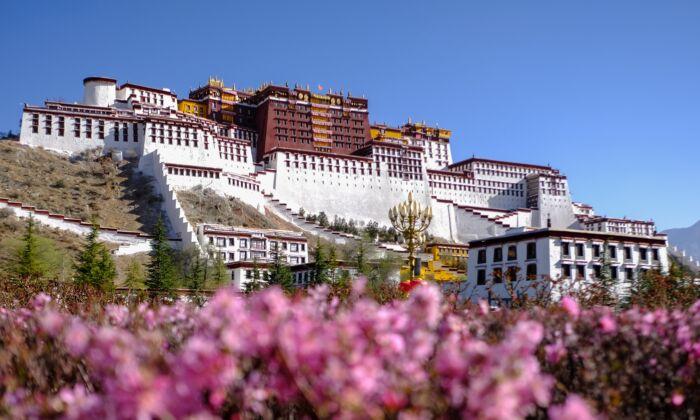Huang Xiangmo, a Chinese billionaire accused of attempting to influence Australian politicians on behalf of the Chinese regime, has been denied Australian citizenship. The Canberra government also cancelled his permanent residency.
Fairfax Media, an Australian media group, first
reported on Feb. 5 that officials have denied the citizenship application of “Beijing’s former top lobbyist in Australia.” This is the government’s first direct action against a suspected Chinese Communist Party (CCP) influence agent since new laws targeting
foreign interference were introduced in 2018.
The Australian Associated Press reported on Feb. 6 that Huang is currently stranded in Beijing and will not be able to return to his luxury mansion in Sydney.
Huang, 49, was born in Jieyang City of southern China’s Guangdong Province. Australian media reported that he donated roughly AU$2.7 million ($1.94 million) to major Australian political parties over the past five years.
Huang founded his real estate developer firm Yuhu Group in 2006, according to the company’s
website.
In 2007, Huang was appointed a
member of the standing committee representing Jieyang City to the Chinese People’s Political Consultative Conference, an advisory body to the CCP, before he immigrated to Sydney in 2011 with his wife and children.
In 2012, Huang founded Yuhu Group Australia, a real estate development and investment company based in Sydney. He also became
president of the Australian Council for the Promotion of the Peaceful Reunification of China (PPRC Australia), a group under the umbrella of the United Front Work Department, a CCP agency tasked with spreading Beijing’s agenda overseas.
Huang wasn’t the topic of media headlines until he
bought a luxury hilltop mansion in Sydney’s wealthy north shore in 2012, which cost him AU$12.8 million ($9.2 million). Five more multi-million-dollar houses on the same hill were later sold to Huang’s friends within a short period, according to Fairfax Media.
The recent
report said Huang’s role as president of PPRC Australia helped him to reach top-level leaders. Since 2012, through political donations, Huang has managed to build relationships with Australia’s two major political parties, the center-left Labor Party and center-right Liberal Party.
In 2015, Huang paid AU$55,000 ($39,150) to the fundraising arm of the Labor Party in order to have lunch with Bill Shorten, leader of the Labor Party, amid a heated political debate on a trade deal with China, ABC
reported. The Labor Party had opposed the deal.
In 2017, Sam Dastyari, then-Labor senator, hosted with Huang a press conference for local Chinese-language media and talked about the South China Sea issue in favor of the Chinese regime, the ABC
reported. This contradicted the Labor Party’s stance which supported the United States’ critique of China’s aggression in the region.
It was later revealed by the outlet that Huang’s company paid for Dastyari’s legal bills in 2014.
Dastyari resigned in January 2018 after repeated allegations of his close ties with Beijing, including a Fairfax report that Dastyari warned Huang that his phone was probably being tapped by spy agencies during a secret meeting.
According to Fairfax, two weeks prior to the 2016 federal election, Huang attempted to use a AU$400,000 ($284,440) donation to the Labor Party as leverage to influence the party’s policy on China.
Australian Security Intelligence Organisation, the country’s chief intelligence agency, had warned several politicians of Huang’s links to the Chinese regime, including Malcolm Turnbull, the Liberal Prime Minister from 2015 to 2018, Tony Abbott, the Liberal Prime Minister from 2013 to 2015; and Shorten, the outlet
reported.
The most recent Fairfax
report quotes senior government sources saying that the Australian Home Affairs Department denied Huang’s citizenship application due to “a range of reasons,” including his background and concerns over the reliability of his answers when interviewed by Australian security officials.
Huang, in a
statement released on Feb. 8, denied he violated any Australian laws or regulations.
For Huang to return to his harborside mansion, he would have to challenge the citizenship denial at the Administrative Appeals Tribunal or request an internal review, but these processes could take a long time.






Friends Read Free